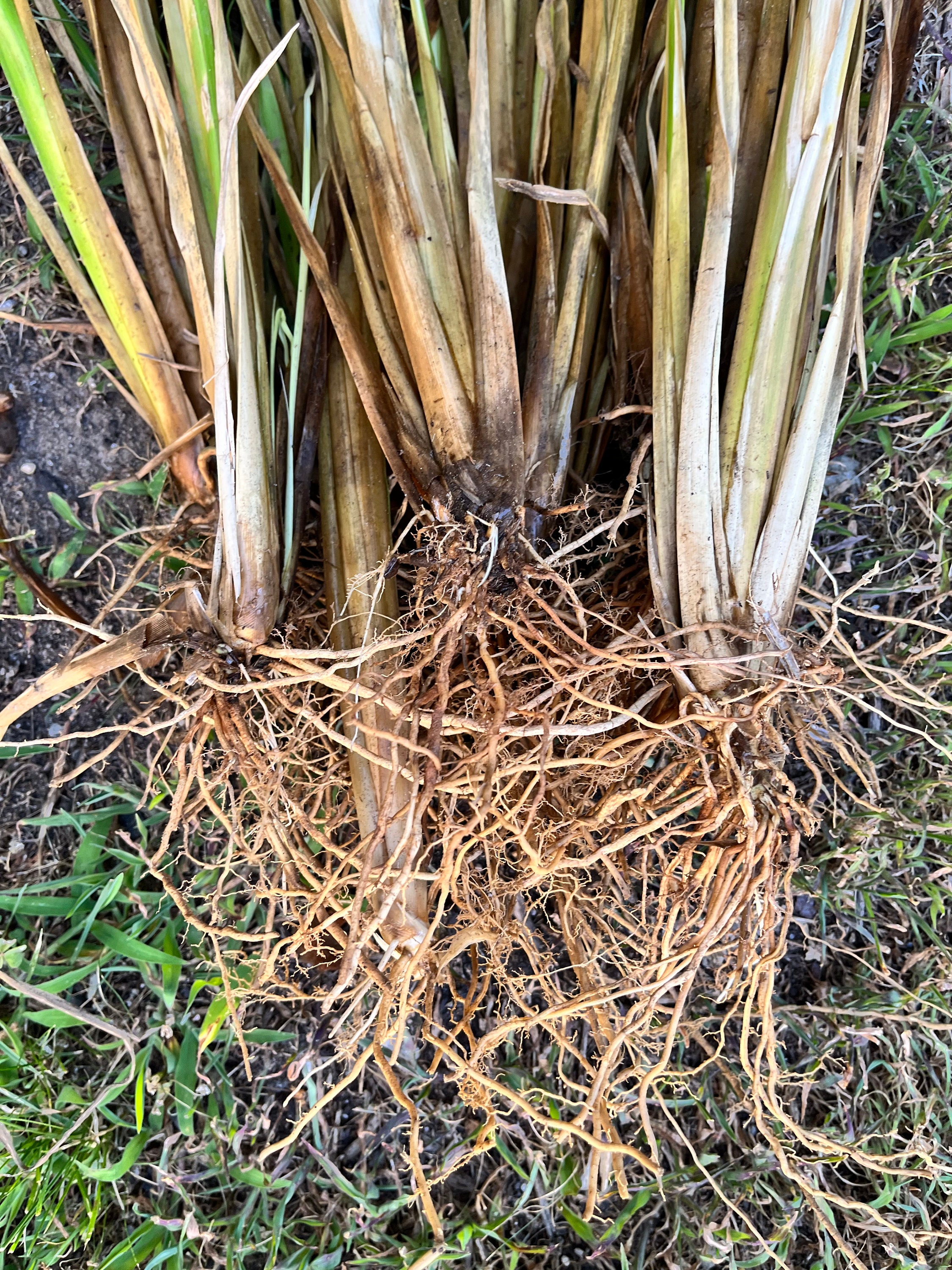Vetiver -50 Bare root plants. Year round for zones 8-11, indoors or greenhouses. Slips, sunshine, roots, oil
$125.00
Vetiver plants love to grow - they'll send out roots while they're travelling to your house in a shipping container. As long as you water them and keep them in the sun, they will grow. Heat and vetiver go together - just add water for the first few months and they will be happy.
In cold regions, you need to bring them indoors for the winter or mulch them heavily. They will only die if they're frozen to the ground for an extended period. I've over-wintered some in Zone 7 and they came back in the spring. More info on vetiver at www.vetiver.org
Vetiver for soil stabilization: There are four significant types of erosion, one of which is known as mass-movement erosion. When gravity combines with heavy rain or earthquakes, whole slopes can slump, slip or slide. The effect of slopes slipping or sliding then fall into two categories: deep-seated and shallow-seated. A deep-seated issue is a geographical issue in nature. Correcting this type of failure requires understanding slope geometry, soil strength, climatic condition, groundwater qualities, etc. A landslide where the sliding surface lies beneath the soil mantle or weathered bedrock is known as a shallow land.
Vetiver planted in the flood area of a river and on the banks themselves can provide stability and protection. Vetiver river bank buffers will also reduce sediment flows into waterways and the amounts of excess phosphates, nitrates, and heavy metals from entering vital water systems. Land slides that occur in many areas of high and intense rainfall cause tremendous economic loss and hardships. Many of these slides would not happen if slopes were adequately protected. Vetiver grass is an ideal plant since it can pin “slippable soil horizons” to underlying more stable sub-soil horizons.
Shipping from United States
Processing time
21 business days
Customs and import taxes
Buyers are responsible for any customs and import taxes that may apply. I'm not responsible for delays due to customs.
Payment Options
Returns & Exchanges
I gladly accept returns, exchanges, and cancellations
Just contact me within: 14 days of delivery
Ship items back to me within: 30 days of delivery
Conditions of return
Buyers are responsible for return shipping costs. If the item is not returned in its original condition, the buyer is responsible for any loss in value.
Questions about your order?
Please contact me if you have any problems with your order.
Frequently Asked Questions
Is vetiver (chrysopogon zizanioides) invasive?
No it is sterile and therefore non-invasive. Propagation is by root division/separation. The vertical roots do not compete with nearby crops. It can be used as a nurse plant for young trees.
Custom and personalized orders
Vetiver is perennial clumping grass and has been known to live 100 years in the tropics. It will form a dense hedge when planted closely together. This is how vetiver protects slopes from runoff and soil loss.
Custom and personalized orders
Vetiver can be used for biomass, fuel briquettes, garden mulch, it can purify water and is hardy as long as it isn't frozen to the ground.
Custom and personalized orders
Once established, vetiver is very drought tolerant. It needs to be in 4 hours of sun each day (no full shade) and will take a lot of water initially.
How deep can vetiver roots grow?
In two years, a well established vetiver plant can send its roots 6 feet down in good soil. This gives it the capability to hold soil on slopes, riverbanks and coastal areas (its salt tolerant).






